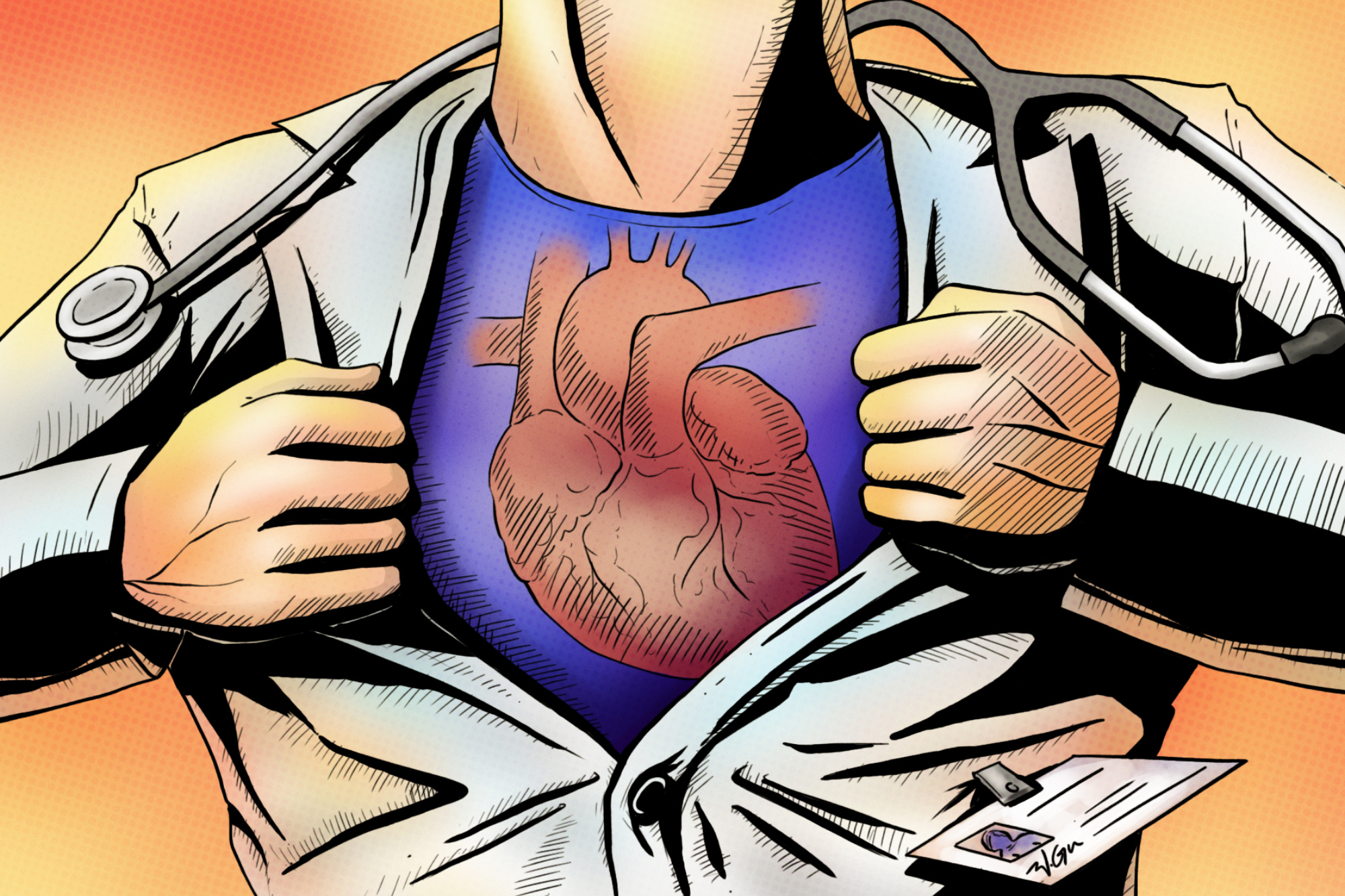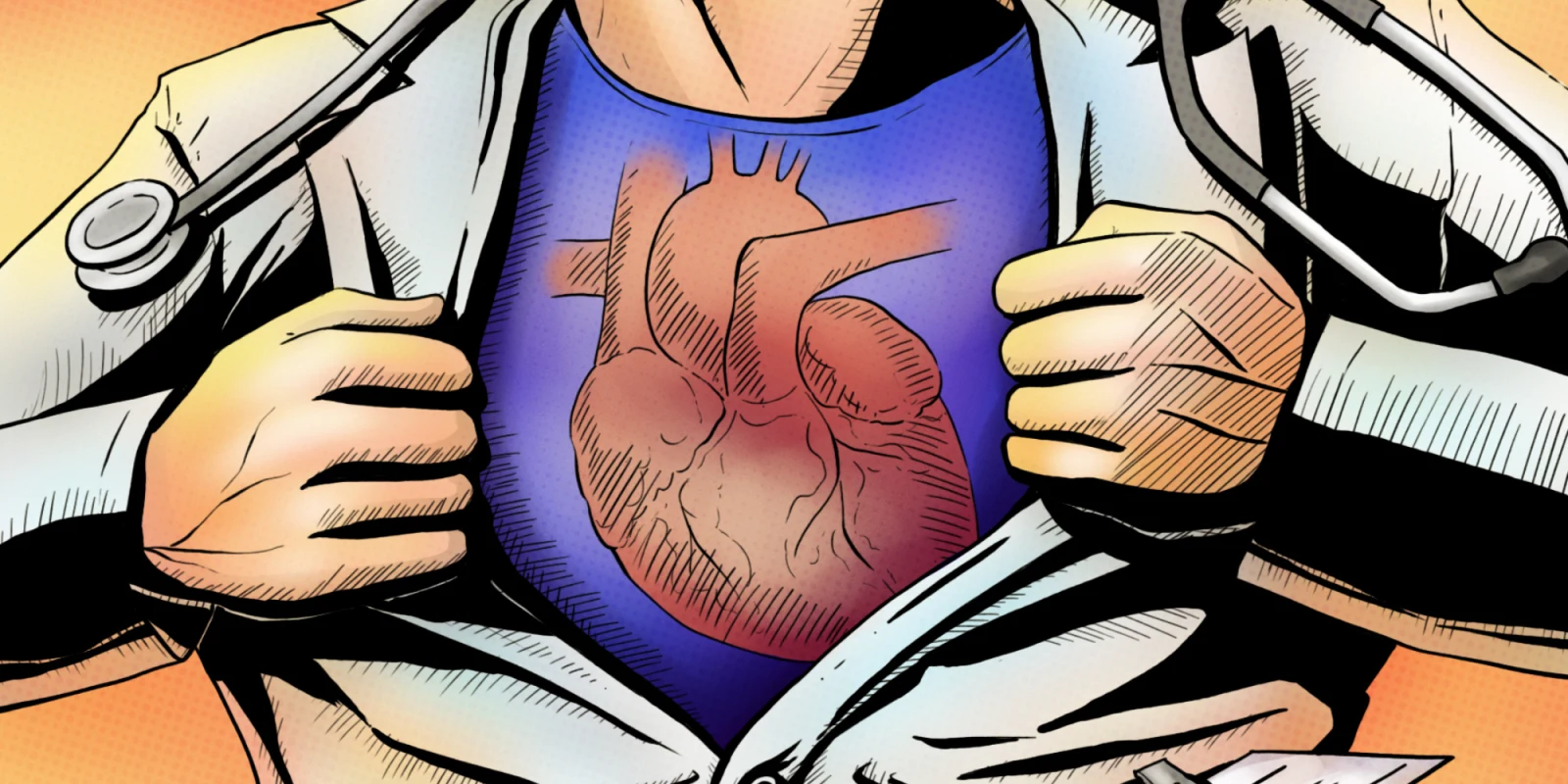
About 10 months after losing my mom to heart disease and six months after delivering my daughter, I suddenly began having issues with breathing. I thought I had pneumonia or a pulmonary embolism. I had flown from Memphis after visiting medical school friends and then flew back home with my 6-month-old daughter and found myself struggling to walk through the airport. I had to stop several times to rest. Once I got home, I wanted to take a nap but could not lie flat. I knew something was wrong and needed to go to the hospital.
Unfortunately, my first ever sick hospital stay did not come without challenges. I was seen by an ER doctor and later a cardiologist who was assigned to my care; neither informed me of my diagnosis. Once I was admitted to a hospital room, my husband and I still had no idea what was going on with me or what was suspected until a nurse gave me medications to take – lisinopril and Coreg. My blood pressure was higher than usual, but I needed to know why they were giving me those particular medications. I knew they were heart failure medications. The nurse could not tell me, and when I asked to speak to the doctor, she told me that because it was a Sunday night, the cardiologist would not talk to me until the next day. With the help of my husband’s colleague, I fired that cardiologist and requested a different cardiologist. The new cardiologist called me on the phone to discuss my care. When he said, “So you’re the patient with new onset heart failure,” I was in shock.
I said, “I am? No one told me, and you should know that I received 1 liter of IV fluids after the CT scan to check for a pulmonary embolism and have not been given any Lasix.” He was shocked. I’m fearful of what would have happened to me that night had I not had medical knowledge and my husband’s colleague to help me find a new cardiologist. Never did heart failure enter my mind as a realistic diagnosis for me. I was 30 years old when I was diagnosed with severe congestive heart failure with an ejection fraction less than 15%.
I had to adjust to a new normal. With such a low ejection fraction, I had to wear a Life Vest — an external defibrillator — due to the high risk of going into an abnormal rhythm and needing defibrillation. I had to take multiple medications every day. I was restricted to a very low salt diet and had to cut down on exercise. I couldn’t walk across my home without being tired. I returned to work the week after being discharged from the hospital but got tired walking between patient rooms. I was 30 years old yet going to cardiology appointments where I was one of the youngest patients in the waiting room. I was the mom of an infant but was too tired to do all the things I should be doing with her. I was a wife but was too tired to cook or go to events with my husband that required walking. My MD degree did not save me from this.
This experience showed me my own mortality. I’m human, and we all are subject to dealing with sickness. However, I had too many people depending on me to let this diagnosis keep me from getting back to enjoying life. So I followed my doctor’s recommendations. It was hard to not eat the foods I wanted. It was hard to take multiple medications several times a day. It was hard to go to various cardiology appointments and be a patient, but I had to get better. It was frustrating to hear the cardiologist be unsure why my heart failure occurred. I didn’t fall into any classic category for causes. However, despite the difficulty and frustration, I decided I would not be at peace with myself if I failed to follow instructions and thus so no improvement in my condition. If I didn’t recover to the point I wanted, it wouldn’t be my fault. I controlled what I could and prayed to God for the rest. In times of doubt and feeling discouraged, I repeated positive affirmations with scriptures to help me remember God’s word. Though God’s timeline was a lot longer than mine, I did return to a normal functioning heart in 2013.
As a physician, these experiences have taught me more effective skills in interacting with and managing my patients. There’s only so much that book knowledge will give you in patient care. Treating patients as you would your own family members or how you’d expect to be treated as a patient can be taught, but reflection and introspection from personal experiences can aid in elevating you to a higher level of care and compassion. I demonstrate and teach these skills to staff and remind them to think about how the situation would be if it were happening to them. Additionally, the staff see how I interact with them and patients, and therefore know my expectations of kindness and attentiveness in interacting with one another and conducting patient care. I understand that as a leader on the team, I must be the example of what I expect to see. The loss of my mother, my pregnancy, and my personal experience with illness have challenged me and taught me skills to help me grow and teach. The process was not easy, but I have gained unique insight that I can share to help others in their journey of life. “In the same way, let your light so shine before others, that they may see your good deeds and glorify your Father in heaven.” Matthew 5:16.
Dr. Crystal Maxwell is a Family Medicine physician, public speaker, entrepreneur, wife, and mom.
This excerpt is featured in part or full in The Chronicles of Women In White Coats 2.
Illustration by Wendy Gu







